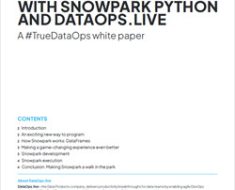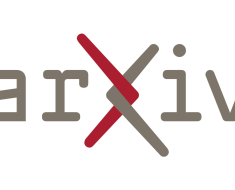
(NIST), T. N. I. o. S. a. T: AI Risk Management Framework (AI RMF 1.0). Retrieved from (2023). https://www.nist.gov/system/files/documents/2024/10/07/09-24-about-the-ai-rmf-for-distro-9-25_508-edit.pdf
Abney, K.: Robotics, ethical theory, and metaethics: A guide for the perplexed. Robot Ethics: Ethical Social Implications Rob., 35–52. (2012)
Acemoglu, D., Restrepo, P.: Automation and new tasks: How technology displaces and reinstates labor. J. Econ. Perspect. 33(2), 3–30 (2019). https://doi.org/10.1257/jep.33.2.3
Aldarondo, D., Merel, J., Marshall, J.D., Hasenclever, L., Klibaite, U., Gellis, A., Ölveczky, B.P.: A virtual rodent predicts the structure of neural activity across behaviors. Nature. (2024). https://doi.org/10.1038/s41586-024-07633-4
AlphaCode 2 technical report
Ammanath, B.: How to manage AI’s energy demand — today, tomorrow and in the future. Retrieved from (2024). https://www.weforum.org/agenda/2024/04/how-to-manage-ais-energy-demand-today-tomorrow-and-in-the-future/
Anderson, J., Rainie, L.: Themes: The most harmful or menacing changes in digital life that are likely by 2035. In: As AI Spreads, Experts Predict the best and Worst Changes in Digital life by 2035: They have deep Concerns about People’s and Society’s Overall well-being, pp. 114–158. Pew Research Center, Washington (2023)
Andreotta, A.J., Kirkham, N., Rizzi, M.: AI, big data, and the future of consent. AI Soc. 37(4), 1715–1728 (2022). https://doi.org/10.1007/s00146-021-01262-5
Autor, D.: Why are there still so many jobs? The history and future of workplace automation. J. Econ. Perspect. 29(3), 3–30 (2015). https://doi.org/10.1257/jep.29.3.3
Bai, Y., Kadavath, S., Kundu, S., Askell, A., Kernion, J., Jones, A., Kaplan, J.: Constitutional AI: Harmlessness from AI feedback. arXiv Preprint arXiv:221208073. (2022)
Baji, T.: GPU: the biggest key processor for AI and parallel processing. In Photomask Japan 2017: XXIV symposium on photomask and next-generation lithography mask technology (Vol. 10454, pp. 24–29). Washington: SPIE. (2017)
Battaglia, P.W., Hamrick, J.B., Bapst, V., Sanchez-Gonzalez, A., Zambaldi, V., Malinowski, M., Faulkner, R.: Relational inductive biases, deep learning, and graph networks. arXiv preprint arXiv:1806.01261. (2018)
Bessen, J.: Automation and jobs: When technology boosts employment*. Economic Policy. 34, 589–626 (2019). https://doi.org/10.1093/epolic/eiaa001
Bird, E., Fox-Skelly, J., Jenner, N., Larbey, R., Weitkamp, E., Winfield, A.: The Ethics of Artificial Intelligence: Issues and Initiatives. European Parliamentary Research Service, Brussels (2020)
Boch, A., Hohma, E., Trauth, R.: Towards an Accountability Framework for AI: Ethical and Legal Considerations. Institute for Ethics in AI, Technical University of Munich, Germany (2022)
Bostrom, N.: Superintelligence: paths, dangers, strategies. (2014)
Brooks, R.A.: Intelligence without reason. In: The Artificial life Route to Artificial Intelligence, pp. 25–81. Routledge (2018)
Brundage, M., Avin, S., Clark, J., Toner, H., Eckersley, P., Garfinkel, B., Amodei, D.: The malicious use of artificial intelligence: forecasting, prevention, and mitigation. arXiv preprint arXiv:1802.07228. (2018)
Brynjolfsson, E., McAfee, A.: The Second Machine age: Work, Progress, and Prosperity in a time of Brilliant Technologies. W W Norton & Co, New York, NY, US (2014a)
Brynjolfsson, E., McAfee, A.: The Second Machine age: Work, Progress, and Prosperity in a time of Brilliant Technologies. WW Norton & Company (2014b)
Brynjolfsson, E., Rock, D., Syverson, C.: Artificial Intelligence and the Modern Productivity Paradox: A Clash of Expectations and Statistics. Kauffman: Large Research Projects (Topic). (2017a)
Brynjolfsson, E., Rock, D., Syverson, C.: Artificial Intelligence and the Modern Productivity Paradox: A Clash of Expectations and Statistics. National Bureau of Economic Research, Cambridge (2017b)
Cabral, T.S.: Forgetful AI: AI and the right to erasure under the GDPR. Eur. Data Prot. Law Rev. 6, 378 (2020). https://doi.org/10.21552/edpl/2020/3/8
Cazzaniga, M., Jaumotte, M.F., Li, L., Melina, M.G., Panton, A.J., Pizzinelli, C., Tavares, M.M.M.: Gen-AI: Artificial Intelligence and the Future of work. IMF, Washington (2024)
Chaudhry, A., Rohrbach, M., Elhoseiny, M., Ajanthan, T., Dokania, P.K., Torr, P.H., Ranzato, M.A.: On tiny episodic memories in continual learning. (2019). arXiv preprint arXiv:1902.10486.
Chen, Q., Bridges, R.A.: Automated behavioral analysis of malware: a case study of wannacry ransomware. In 2017 16th IEEE international conference on machine learning and applications (ICMLA) (pp. 454–460). Cancun: IEEE. (2017)
Cox, J.G.: Reframing ethical theory, pedagogy, and legislation to bias open source AGI towards friendliness and wisdom. J. Ethics Emerg. Technol. 25(2), 39–54 (2015)
Creemers, R.: China’s social credit system: An evolving practice of control. SSRN Electron. J. (2018). https://doi.org/10.2139/ssrn.3175792
Dafoe, A.: AI Governance: A Research Agenda. Governance of AI Program, Future of Humanity Institute, University of Oxford, Oxford (2018)
Defelipe, J.: The evolution of the brain, the human nature of cortical circuits, and intellectual creativity. Front. Neuroanat. 5, 29 (2011). https://doi.org/10.3389/fnana.2011.00029
Dignum, V.: Responsible Artificial Intelligence: how to Develop and use AI in a Responsible way. Springer, Cham (2019)
Dilmegani, C.: When will Singularity Happen? 1700 Expert Opinions of AGI. AIMultiple Research (2023)
Donovan, J.M., Caplan, R., Matthews, J.N., Hanson, L.: Algorithmic Accountability: A Primer. Data & Society, New York (2018)
Dreyfus, H.L.: Why heideggerian AI failed and how fixing it would require making it more heideggerian. Philos. Psychol. 20(2), 247–268 (2007). https://doi.org/10.1080/09515080701239510
Eden, A.H., Steinhart, E., Pearce, D., Moor, J.H.: Singularity hypotheses: An overview. In: Eden, A.H., Moor, J.H., Søraker, J.H., Steinhart, E. (eds.) Singularity Hypotheses: A Scientific and Philosophical Assessment, pp. 1–12. Springer, Berlin, Heidelberg (2013)
EIA. (2024). How much electricity does a power plant generate? Retrieved from https://www.eia.gov/tools/faqs/faq.php?id=104&%3Bt=3
Floridi, L.: The ethics of artificial intelligence: Principles, challenges, and opportunities. (2023)
Floridi, L., Cowls, J.: A unified framework of five principles for AI in society. In: Carta, S. (ed.) Machine Learning and the city: Applications in Architecture and Urban Design, pp. 535–545. Wiley, Hoboken (2022)
Goertzel, B., Pitt, J., Novamente, L.: Nine ways to bias open-source AGI toward friendliness. Nine, 22(1), 116. (2012)
Good, I.J.: Speculations concerning the first ultraintelligent machine. Adv. Comput. 6, 31–88 (1966). https://doi.org/10.1016/S0065-2458(08)60418-0
Graham, R.: Discourse analysis of academic debate of ethics for AGI. AI Soc. 37(4), 1519–1532 (2022). https://doi.org/10.1007/s00146-021-01228-7
Greenberg, A.: The untold story of NotPetya, the most devastating cyberattack in history. Wired. August. Retrieved from (2018). https://www.wired.com/story/notpetya-cyberattack-ukraine-russia-code-crashed-the-world/
Griggs, T., Wakabayashi, D.: How a self-driving Uber killed a pedestrian in Arizona. The New York Times. Retrieved from (2018). https://www.nytimes.com/interactive/2018/03/20/us/self-driving-uber-pedestrian-killed.html
Hamilton, M., Zisserman, A., Hershey, J.R., Freeman, W.T.: Separating the chirp from the chat: self-supervised visual grounding of sound and language. In Proceedings of the IEEE/CVF conference on computer vision and pattern recognition (pp. 13117–13127): IEEE. (2024)
Havlin, S., Kenett, D.Y.: Cascading failures in interdependent economic networks. Paper presented at the Proceedings of the International Conference on Social Modeling and Simulation, plus Econophysics Colloquium 2014. (2015)
Issac, R., Sangeetha, S., Silpa, S.: Technological singularity in artificial intelligence. (2020)
Julia Angwin, J.L., Mattu, S., Kirchner, L.: ProPublica. Machine Bias. Retrieved from (2016). https://www.propublica.org/article/machine-bias-risk-assessments-in-criminal-sentencing
Konečný, J., McMahan, H.B., Ramage, D., Richtárik, P.: Federated optimization: Distributed machine learning for on-device intelligence. arXiv Preprint arXiv:161002527. (2016)
Kurshan, E.: Systematic AI approach for AGI: Addressing alignment, energy, and AGI grand challenges. (2023). arXiv preprint arXiv:2310.15274.
Lee, J.A., Hilty, R., Liu, K.C.: Artificial Intelligence and Intellectual Property. Oxford University Press, Oxford (2021)
Makridakis, S., Petropoulos, F., Kang, Y.: Large language models: Their success and impact. Forecasting. 5(3), 536–549 (2023)
Manyika, J., Chui, M., Miremadi, M., Bughin, J., George, K., Willmott, P., Dewhurst, M.: A Future that Works: Automation, Employment, and Productivity. McKinsey & Company, New York (2017)
Marcus, G.: Deep learning: a critical appraisal. arXiv preprint arXiv:1801.00631. (2018)
McDonald, J., Li, B., Frey, N., Tiwari, D., Gadepally, V., Samsi, S.: Great power, great responsibility: Recommendations for reducing energy for training language models. arXiv Preprint arXiv:220509646. (2022)
Mehonic, A., Kenyon, A.J.: Brain-inspired computing needs a master plan. Nature. 604(7905), 255–260 (2022). https://doi.org/10.1038/s41586-021-04362-w
Moreno, F.R.: Generative AI and deepfakes: A human rights approach to tackling harmful content. Int. Rev. Law Comput. Technol. 1–30 (2024). https://doi.org/10.1080/13600869.2024.2324540
Mueller, M.: The Myth of AGI. Internet Governance Project. (2024)
Myers, D., Mohawesh, R., Chellaboina, V.I., Sathvik, A.L., Venkatesh, P., Ho, Y.-H., Jararweh, Y.: Foundation and large language models: Fundamentals, challenges, opportunities, and social impacts. Cluster Comput. 27(1), 1–26 (2024)
Narayanan, D., Shoeybi, M., Casper, J., LeGresley, P., Patwary, M., Korthikanti, V., Zaharia, M.: Efficient large-scale language model training on GPU clusters using megatron-LM. In SC21: international conference for high performance computing, networking, storage and analysis (pp. 1–14). New York: Association for Computing Machinery. (2021)
OECD: An OECD learning framework 2030. In: Bast, G., Carayannis, E.G., Campbell, D.F.J. (eds.) The Future of Education and Labor, pp. 23–35. Springer International Publishing, Cham (2019)
Patterson, D., Gonzalez, J., Le, Q., Liang, C., Munguia, L.M., Rothchild, D., Dean, J.: Carbon emissions and large neural network training. arXiv Preprint arXiv:210410350. (2021)
Rae, J.W., Potapenko, A., Jayakumar, S.M., Lillicrap, T.P.: Compressive transformers for long-range sequence modelling. (2019). arXiv preprint arXiv:1911.05507.
Raimondo, S.G.M., Carnahan, L., Mahn, A., Scholl, M., Bowman, W., Chua, J., Nistir, B.: Prioritizing Cybersecurity risk for Enterprise risk Management. National Institute of Standards and Technology, Gaithersburg (2022)
Ribeiro, M.T., Singh, S., Guestrin, C.: Why should i trust you? Explaining the predictions of any classifier. Paper presented at the Proceedings of the 22nd ACM SIGKDD international conference on knowledge discovery and data mining. (2016)
Russell, S.: Human-Compatible Artificial Intelligence. In. (2022)
Saveliev, A., Zhurenkov, D.: Artificial intelligence and social responsibility: The case of the artificial intelligence strategies in the United States, Russia, and China. Kybernetes. 50(3), 656–675 (2021). https://doi.org/10.1108/K-01-2020-0060
Scherer, M.U.: Regulating artificial intelligence systems: Risks, challenges, competencies, and strategies. Harv. J. Law Technol. 29, 353 (2015). https://doi.org/10.2139/ssrn.2609777
Schuett, J., Dreksler, N., Anderljung, M., McCaffary, D., Heim, L., Bluemke, E., Garfinkel, B.: Towards best Practices in AGI Safety and Governance. Surv. Expert Opin (2023)
Schwarcz, S.L.: Systemic risk. Geo Lj. 97, 193 (2008)
Shao, Z., Zhao, R., Yuan, S., Ding, M., Wang, Y.: Tracing the evolution of AI in the past decade and forecasting the emerging trends. Expert Syst. Appl. 209, 118221 (2022). https://doi.org/10.1016/j.eswa.2022.118221
Silver, D., Schrittwieser, J., Simonyan, K., Antonoglou, I., Huang, A., Guez, A., Hassabis, D.: Mastering the game of Go without human knowledge. Nature. 550(7676), 354–359 (2017). https://doi.org/10.1038/nature24270
Staffs of CFTC, & SEC: Findings regarding the market events of MAY 6, 2010. Retrieved from (2010). https://www.sec.gov/news/studies/2010/marketevents-report.pdf
Sze, V., Chen, Y.H., Yang, T.J., Emer, J.S.: Efficient Processing of deep Neural Networks. Springer, Cham (2020)
UNIDO: UNIDO launches global alliance on ai for industry and manufacturing (AIM-Global) at world AI conference 2023. Retrieved from (2023). https://www.unido.org/news/unido-launches-global-alliance-ai-industry-and-manufacturing-aim-global-world-ai-conference-2023
Vaswani, A., Shazeer, N.M., Parmar, N., Uszkoreit, J., Jones, L., Gomez, A.N., Polosukhin, I.: Attention is all you need. In NIPS’17: proceedings of the 31st international conference on neural information processing systems (pp. 6000–6010). California: Curran Associates Inc. (2017)
Voigt, P., Von Bussche, D., A: The EU General data Protection Regulation (GDPR): A Practical Guide, vol. 10. Springer International Publishing, Cham (2017)
Wachter, S., Mittelstadt, B., Floridi, L.: Why a right to explanation of automated decision-making does not exist in the General Data Protection Regulation. Int. Data Priv. Law. 7(2), 76–99 (2017). https://doi.org/10.1093/idpl/ipx005
World Economic Forum: The future of jobs report 2020. Retrieved from (2020). https://www3.weforum.org/docs/WEF_Future_of_Jobs_2020.pdf
Xi, B.: Adversarial machine learning for cybersecurity and computer vision: Current developments and challenges. Wires Comput. Stat. 12(5), e1511 (2020). https://doi.org/10.1002/wics.1511
Zhu, S., Yu, T., Xu, T., Chen, H., Dustdar, S., Gigan, S., Pan, Y.: Intelligent computing: The latest advances, challenges, and future. Intell. Comput. 2, 0006 (2023). https://doi.org/10.34133/icomputing.0006


